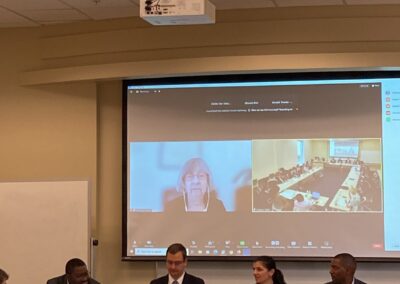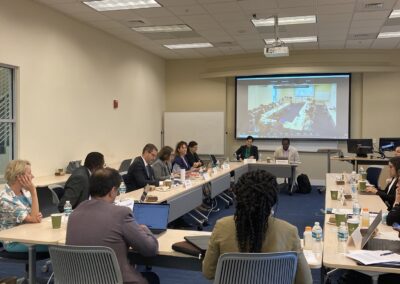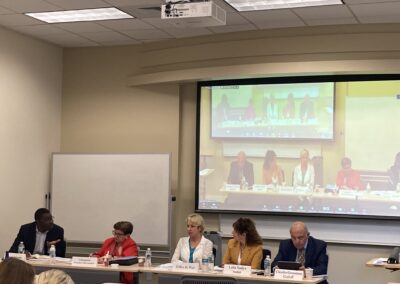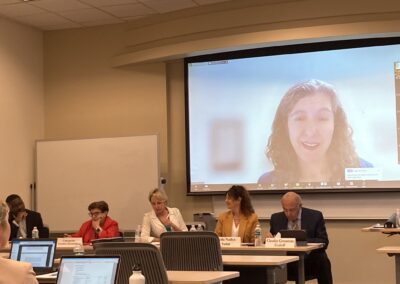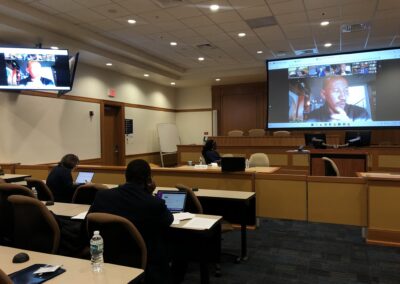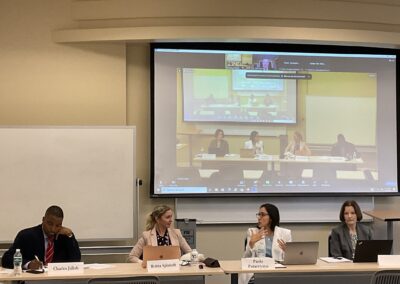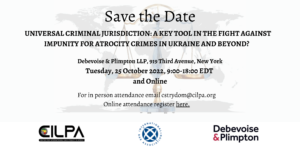Friday/Saturday, 4-5 November EST 2022, FIU College of Law, Miami
The FIU College of Law (“FIU Law”), together with the Center for International Law and Policy in Africa (“CILPA”), convened a two-day symposium in Miami, Florida on Friday/Saturday November 4 and 5, 2022 to discuss the current and future work of the International Law Commission.
The International Law Commission (“ILC” or “Commission”) is mandated to assist United Nations member States with the promotion of the progressive development of international law and its codification. The ILC is widely recognized for the key role it has played assisting the UN General Assembly with the fulfillment of that responsibility, which is rooted in Article 13 of the United Nations Charter, and mandates the latter to promote international cooperation in the political field and to initiate studies with the view to promoting the progressive development and codification of international law. The Commission’s draft articles, for which it came to be widely known, frequently served as the negotiating basis for many treaties concluded by States in critical areas of international law especially in the period between the 1950s and the 1970s. These range from the law of treaties to the law of the sea, and to the law of diplomatic and consular relations. Some of the treaties concluded on the basis of the ILC’s draft articles today serve as foundations for the smooth conduct of international relations.
But 73 years after it was established, the challenges that face the world today are substantially different from those that existed when the Commission was established in 1947. As States grapple with new challenges, from climate change and sea level rise to global pandemics, cyberthreats, autonomous weapon systems and beyond, what role can the ILC play in our increasingly complex world? What topics has it selected for its long-term program of work? What new topics has it added to its current work program, and what if anything, does such decisions imply about the direction of its work over the next years under a new membership composition for the term 2023-2027?
The first day of the symposium, which was open to the public, focused on two specific sub-themes. First, the completion of two main topics, upon second reading, by the ILC during its recently concluded 73rd (2022) session, namely, “peremptory norms of general international law (jus cogens)” and “protection of the environment in relation to armed conflicts.” The discussion of those topics center on clarifying the core issues that arose during the studies on those topics, and the final outcomes and possible added value for States and international lawyers. Second, the status of the ILC’s current work, in particular, the significant adoption upon first reading of a full set of draft articles, with commentaries, on the longest running topics in the current work program of the Commission, namely, “immunity of State officials from foreign criminal jurisdiction.”
The discussion of the second reading topics, along with immunity, which has generated considerable interest among States, legal academia, and civil society, was followed by a private workshop, on the second day of the symposium on two of the three most recent topics added to the ILC work program in May 2022, namely, the “prevention and repression of piracy and armed robbery at sea” and “subsidiary means for the determination of rules of international law.” The two special rapporteurs for those two topics presented their preliminary ideas on how the ILC could address those studies, including issues of scope and methodology. The workshop invited peer discussion of their plans for their first reports with the scholars, starting with the discussants, critiquing their plans and making suggestions for potential improvements.

